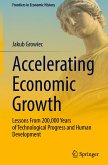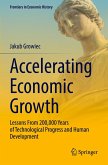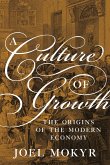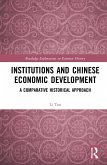This book traces the diffusion trajectory of the second and third generation of British steam engines, the Watt and high-pressure models, covering the period 1774 to 1870. It begins by subjecting to econometric analysis the latest version of Dr. Kanefsky's database on 18th century steam engines coming up with an upward revision of the total amount of horsepower installed by 1800. Subsequent chapters delve into the determinants of the diffusion process through the third quarter of the 19th century relating to engines used both in mining and industry as well as transportation (railways, steam cars).
The book's main contribution to the literature lies in drawing material from a very large volume of 18th- and 19th-century sources found in the Dibner Library of Rare Books, Smithsonian, and by utilizing a fair amount of technical literature pertaining to the economic factors driving the diffusion process. This great expansion of the empirical material has led to bringing multiple revisions to the work of other authors on the key aspects and determinants of the diffusion process. In conjunction with the publication by the author of an earlier monograph on the first generation of steam engines, the Newcomen model, the present study completes the task of offering the most comprehensive account of the preeminent and most strategic technology of the British Industrial Revolution.
This book will appeal to students, scholars, and researchers of economic history and history of technology, interested in a better understanding of the industrial revolution in general and the role of British steam engines in particular.
The book's main contribution to the literature lies in drawing material from a very large volume of 18th- and 19th-century sources found in the Dibner Library of Rare Books, Smithsonian, and by utilizing a fair amount of technical literature pertaining to the economic factors driving the diffusion process. This great expansion of the empirical material has led to bringing multiple revisions to the work of other authors on the key aspects and determinants of the diffusion process. In conjunction with the publication by the author of an earlier monograph on the first generation of steam engines, the Newcomen model, the present study completes the task of offering the most comprehensive account of the preeminent and most strategic technology of the British Industrial Revolution.
This book will appeal to students, scholars, and researchers of economic history and history of technology, interested in a better understanding of the industrial revolution in general and the role of British steam engines in particular.
"The book is a superb compendium of detailed micro-economic research, built on a thorough investigation of the secondary literature augmented substantially by Professor Kitsikopoulos's own investigations. ... I thoroughly recommend the book as a varied and detailed historical compendium of technological diffusion for wide set of academic audiences. ... Professor Kitsikopoulos has done a superb job of thoroughly investigating and synthesising these in this excellent book." (James Fowler, Business History, January 30, 2024)








